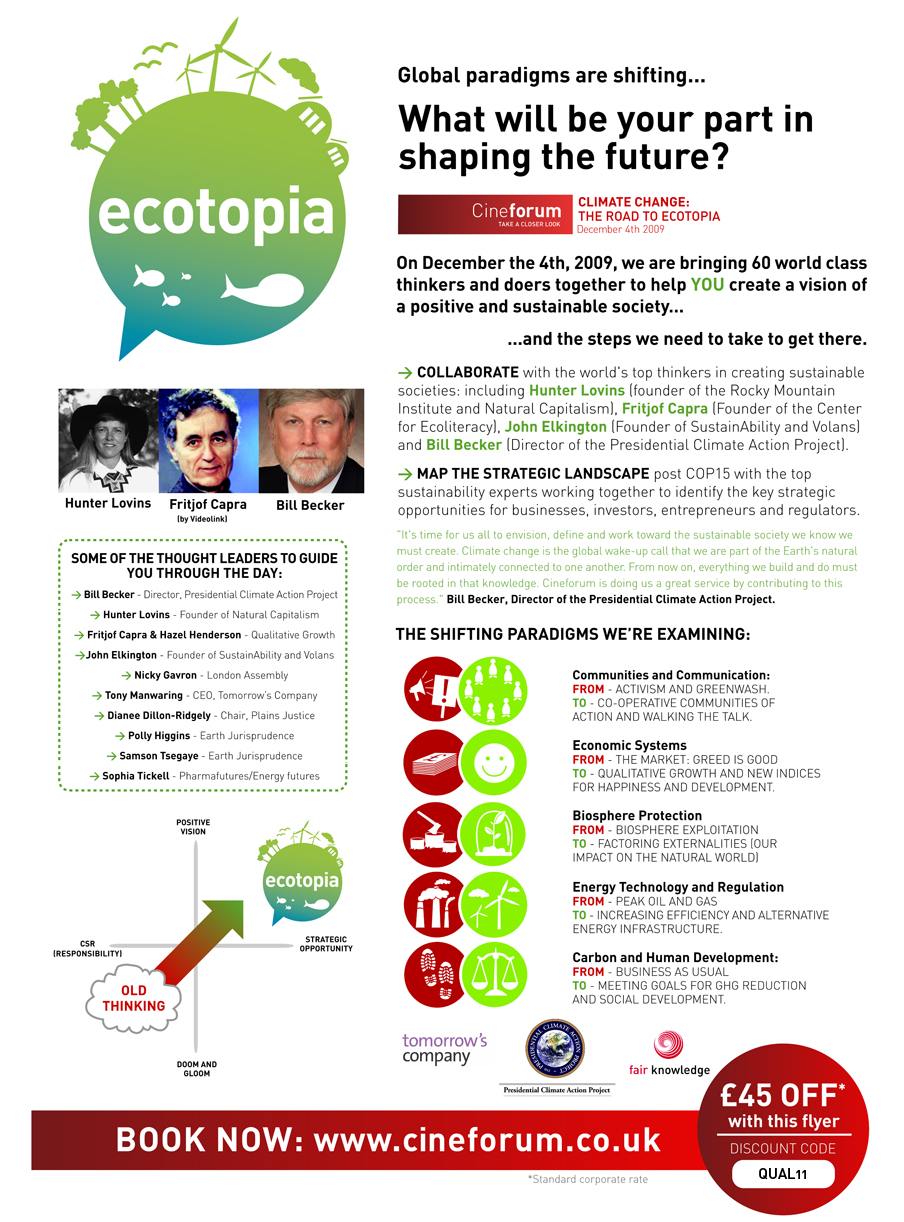A day spent in S Wales with 40 climate change specialists from business, government and third sector, looking at a range of topics:
Dr Andy Fraser - Policy and community context, Andy Middleton - Understanding the urgency for change
Usha Ladwa-Thomas - Behaviour change tools, Cathryn Al Kanaan - Global to local experience
Aled Owen - Community Councillor Experience
Andy Fraser - Head of Climate Change Policy, WAG
www.wales.gov.uk/climatechange
Developing policy on mitigation and adaptation for whole of Welsh Assembly Government, working closely with the communication & engagement teams - helping communities meet the climate change agenda is the most important thing that we need to be doing in Wales. Key messages:
The scientific case for action to tackle climate change is clear. IPCC's have said that that evidence for anthropogenic climate warming is 'unequivocal'. Neither Andy or others he's been working with in the US are optimistic about immediate prospects for change at Copenhagen. We know that we will be affected - opportunities for greater tourism for instance will be greatly outweighed by the negatives.
The UK Climate Impacts Programme produced, in June 2009, three different emissions scenarios on how the climate will change in 20, 30 40 years ahead. WAG have been working with UKCIP to understand what their forecast changes mean for Wales - broadly speaking this means warmer, drier summers in which the short periods of extreme heat that we've experienced in the past will become standard - meaning that we'll need to think about that impact on health, water, food, transport and much more. Milder wetter winters will bring floods and storm damage.
In the week beginning 23rd November, the team are running half day sessions on interpreting UKCIP's information for different sectors.
WAG's 'One Wales' multi-party strategy agrees to "carbon reductions-equivalent reductions of 3% a year by 2011 in areas of devolved competence'. The baseline data for reductions will be an average of emissions in 2006-2010. The emissions targets covers all areas except large business and energy generation (which are included in the EU Emissions Trading Scheme). Older approaches which use a 1990 baseline are a) inaccurate, b) out of date. One of the problems with using an '06-'10 baseline is that WAG won't have the figures until 2012 because of reporting times.
Through the Kyoto targets and the Climate Change Act, there is a commitment to reduce greenhouse gas emissions by 80% by 2050 against 1990 - Wales' targets are slightly above this.
Andrew expected that Copenhagen, although probably lacking the big changes that might have been hoped for, are still likely to produce the framework between Annex 1 and Annex 2 countries that can lead to serious agreements over the following 12 months. It's quite likely that the UK's CO2 targets wil then get ratcheted up.
WAG have just completed their second consultation on the Climate Change Strategy - Programme of Action, and the team are busy working with the key people in other areas to work out what needs to happen to deliver the 3% reductions, and are working with the Climate Change Commission to shape the climate change strategy.
Main principles that focus the Programme of Action:
WAG has made a big commitment to do what it can do, and there's a recognition that the government cannot do this alone - all other sectors have a role to play, and without that, there is no chance of hitting the targets. The science [from Tyndall Centre's Kevin Andersen and others] is showing that reductions rates need to be at 6%, not 3.
Leadership by example and building climate change into Assembly Government will be essential, and improving energy efficiency across all sectors will be key to this.
Identifying where Wales' natural resources, land management patterns and economy can contribute to reducing emissions in Wales. In terms of energy generation through renewables, there are huge opportunities across the country.
Socially just measures are key too as the impacts of climate change will affect those least able to adapt the most, both in our own country and in developing countries.
23 measures are set out in the Programme of Action, in the following sectors: transport, business, residential, waste, public sector, agriculture and land management, behaviour change and adaptation.
The ability to measure and manage carbon emissions is key, and through approaches including the UK-wide Carbon Reduction Commitment and the Wales-based Glas Tir land management framework, changes will trickle in from a wide range of sources.
In terms of behaviour change, the engagement process is probably the most critical area of all as without a political mandate, the politicians are not able to lead with the actions that science is demanding. 3% is a political targets, and there is a clause that says "we will look for opportunities to go beyond 3% to emissions reductions of 6% and 9% a year). A report from the Tyndall Centre will be published at the end of November talking about what bigger steps look like in terms of policy.
Community Action for Climate Change
Events in Newport, Llangollen and Aberystwyth
Three pathfinder projects in Cardiff, Carmarthen & Wrexham
Age of Stupid
Funding for 'cautious community' groups
Pilot training module for Communities First
 Sunday, November 15, 2009 at 11:06PM
Sunday, November 15, 2009 at 11:06PM  4 degreesm climate action,
4 degreesm climate action,  Do.,
Do.,  TYF,
TYF,  sustainability
sustainability 

